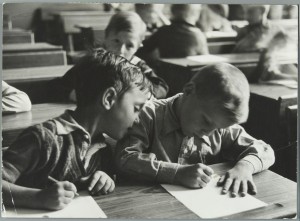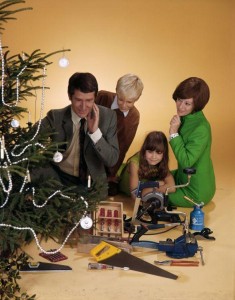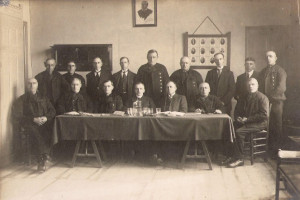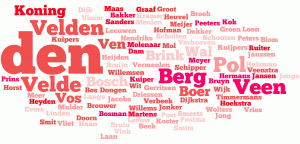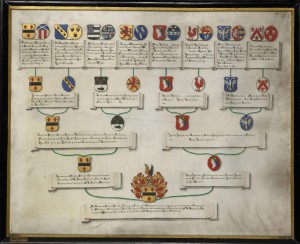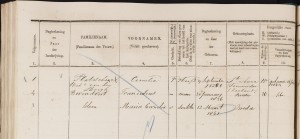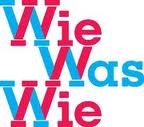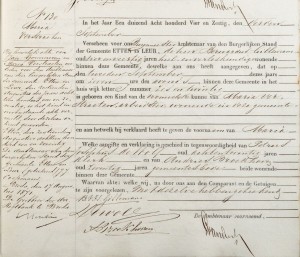The term Nieuwjaar means 'new year.' If you want to wish people in the Netherlands 'Happy new year,' you say 'Gelukkig Nieuwjaar!' The new year did not always start on January 1st. During the French occupation (1795-1815), the year started on 22 September. During the Middle Ages, some people used the Christmas style while others used the Eastern style calendar, named after the day that was considered the first day of the year. The Eastern calendar is particularly cumbersome since the timing … [Read more...]
Archives for December 2013
Looking back on 2013
The end of the year is fast approaching. And what a year it has been! One of my first highlights of the year was attending Who Do You Think You Are Live in London in February. I was able to stay with an American friend/cousin who was living in the UK at the time. I had not seen her in person since 1997 and was so happy to see her again and finally get to meet her two children. Attending Who Do You Think You Are also gave me the opportunity to meet some great genealogists from around the … [Read more...]
Quick tip: Beware that you don’t translate names
Many genealogists who don't speak Dutch use Google Translate or Chrome to translate Dutch websites into English. But sometimes, these programs translate more than you want. A person named Van der Molen might become From the Mill or a Dhr. Timmerman becomes Mr. Carpenter. The same could happen with geographical names: a village called De Rijp might become The Ripe and a street address Haven 5 might become Harbor 5. Next time you see an English name in a translated text, check the original … [Read more...]
Dutch term: Kerstmis
The word Kerstmis means Christmas. Traditionally, Christmas was celebrated in the Netherlands by going to to church and celebrating at home by having extra nice food. Dutch people did not give each other gifts for Christmas, as that was done on St. Nicholas' Eve (5 December). Over the last couple of years, Christmas has grown in popularity in the Netherlands so today it is not just a holiday but also a time when many people share gifts. … [Read more...]
Source: church council minutes
Protestant or Reformed churches have a church council that administers the church. The church council consists of the minister, the elders and deacons. Some churches also appointed guardians who were responsible for the management of the church estates. Especially in earlier centuries, the council was involved with all aspects of the lives of their parishioners, ranging from the baptisms of children to the admonishment of sinners. The minutes of the church council can be a real treasure … [Read more...]
Quick tip: mind the suffixes of the name
Did you know that different types of names were particular to different areas of the Netherlands? For example, names with an -ink suffix like Hoitink are typical for the eastern part of the Netherlands while names with a -stra suffix are typical for the north. Read more about suffixes in surnames. … [Read more...]
Dutch term: stamboom
A stamboom is a family tree. Dutch genealogists will say that they practice stamboomonderzoek [family tree research] when they are asked about their hobbies. Searching for your family name in combination with the word stamboom in a search engine may lead you to Dutch publications about your family. … [Read more...]
Looking for census records in the Netherlands?
In many countries, census records are a popular source for genealogical research. In the Netherlands, we use population registers or civil registration records instead. After the census of 1849, the government decided to keep the information up to date. These records are called population registers and show where a family lived in a certain period. Because the registers cover a longer period (usually 10 years), you can see who moved in or out, or who was born or died, which makes them much … [Read more...]
Quick tip: get notified about the English version of WieWasWie
WieWasWie is the most comprehensive website with Dutch genealogical records. An English version is in the works. You can now leave your email address and get notified when the English version is available. … [Read more...]
Dutch term: geboorteakte
A geboorteakte is a birth record. Births have been recorded by the government since 1811 (or 1794-1795 in parts of Limburg and Zeeland). Birth records of people born more than 100 years ago are public. Read more about using birth records to find your Dutch ancestors. … [Read more...]

